Filter by
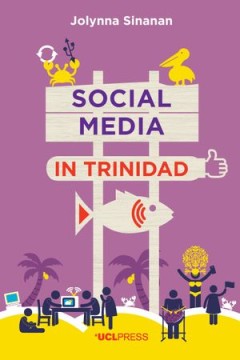
Social Media in Trinidad
Drawing on 15 months of ethnographic research in one of the most under-developed regions in the Caribbean island of Trinidad, this book describes the uses and consequences of social media for its residents. Jolynna Sinanan argues that this semi-urban town is a place in-between: somewhere city dwellers look down on and villagers look up to. The complex identity of the town is expressed through u…
- Edition
- -
- ISBN/ISSN
- 9781787350939
- Collation
- -
- Series Title
- -
- Call Number
- -
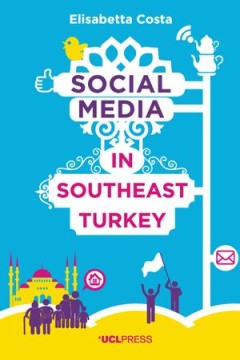
Social Media in Southeast Turkey
This book presents an ethnographic study of social media in Mardin, a medium-sized town located in the Kurdish region of Turkey. The town is inhabited mainly by Sunni Muslim Arabs and Kurds, and has been transformed in recent years by urbanisation, neoliberalism and political events. Elisabetta Costa uses her 15 months of ethnographic research to explain why public-facing social media is more c…
- Edition
- -
- ISBN/ISSN
- 9781910634547
- Collation
- -
- Series Title
- -
- Call Number
- -
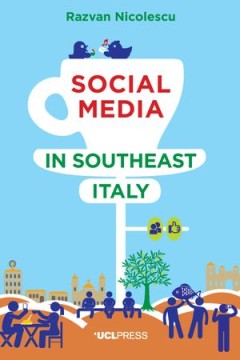
Social Media in Southeast Italy
Why is social media in southeast Italy so predictable when it is used by such a range of different people? This book describes the impact of social media on the population of a town in the southern region of Puglia, Italy. Razvan Nicolescu spent 15 months living among the town’s residents, exploring what it means to be an individual on social media. Why do people from this region conform on p…
- Edition
- -
- ISBN/ISSN
- 9781910634745
- Collation
- -
- Series Title
- -
- Call Number
- -
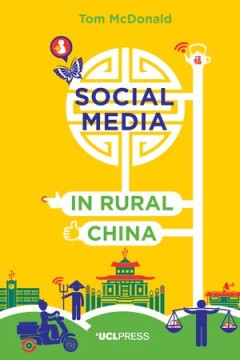
Social Media in Rural China
China’s distinctive social media platforms have gained notable popularity among the nation’s vast number of internet users, but has China’s countryside been ‘left behind’ in this communication revolution? Tom McDonald spent 15 months living in a small rural Chinese community researching how the residents use social media in their daily lives. His ethnographic findings suggest that, fa…
- Edition
- -
- ISBN/ISSN
- 2016
- Collation
- -
- Series Title
- -
- Call Number
- -

Gambling Debt Iceland's Rise and Fall in the Global Economy
Gambling Debt is a game-changing contribution to the discussion of economic crises and neoliberal financial systems and strategies. Iceland's 2008 financial collapse was the first case in a series of meltdowns, a warning of danger in the global order. This full-scale anthropology of financialization and the economic crisis broadly discusses this momentous bubble and burst and places it in theor…
- Edition
- -
- ISBN/ISSN
- 9781607323341
- Collation
- -
- Series Title
- -
- Call Number
- -

The Funeral of Mr. Wang Life, Death, and Ghosts in Urbanizing China
A free open access ebook is available upon publication. Learn more at www.luminosoa.org. In rural China funerals are conducted locally, on village land by village elders. But in urban areas, people have neither land for burials nor elder relatives to conduct funerals. Chinese urbanization, which has increased drastically in recent decades, involves the creation of cemeteries, state-run funeral …
- Edition
- -
- ISBN/ISSN
- 0520381998, 9780520381995
- Collation
- -
- Series Title
- -
- Call Number
- -
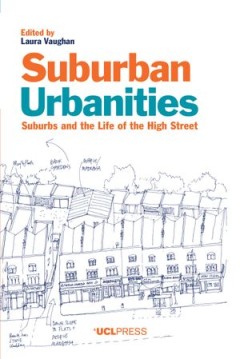
Suburban Urbanities
Suburban space has traditionally been understood as a formless remnant of physical city expansion, without a dynamic or logic of its own. Suburban Urbanities challenges this view by defining the suburb as a temporally evolving feature of urban growth. Anchored in the architectural research discipline of space syntax, this book offers a comprehensive understanding of urban change, touching on th…
- Edition
- -
- ISBN/ISSN
- 9781910634172
- Collation
- -
- Series Title
- -
- Call Number
- 301 VAU s
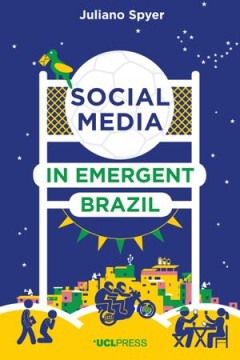
Social Media in Emergent Brazil
Since the popularisation of the internet, low-income Brazilians have received little government support to help them access it. In response, they have largely self-financed their digital migration. Internet cafés became prosperous businesses in working-class neighbourhoods and rural settlements, and, more recently, families have aspired to buy their own home computer with hire purchase agreeme…
- Edition
- -
- ISBN/ISSN
- 9781787351653
- Collation
- -
- Series Title
- -
- Call Number
- 302.23 SPY s

Social Media in Trinidad
Drawing on 15 months of ethnographic research in one of the most under-developed regions in the Caribbean island of Trinidad, this book describes the uses and consequences of social media for its residents. Jolynna Sinanan argues that this semi-urban town is a place in-between: somewhere city dwellers look down on and villagers look up to. The complex identity of the town is expressed through u…
- Edition
- -
- ISBN/ISSN
- 9781787350939
- Collation
- -
- Series Title
- -
- Call Number
- 301 SIN s

Social Media in Southeast Turkey
This book presents an ethnographic study of social media in Mardin, a medium-sized town located in the Kurdish region of Turkey. The town is inhabited mainly by Sunni Muslim Arabs and Kurds, and has been transformed in recent years by urbanisation, neoliberalism and political events. Elisabetta Costa uses her 15 months of ethnographic research to explain why public-facing social media is more c…
- Edition
- -
- ISBN/ISSN
- 9781910634547
- Collation
- -
- Series Title
- -
- Call Number
- 301 COS s
 Computer Science, Information & General Works
Computer Science, Information & General Works  Philosophy & Psychology
Philosophy & Psychology  Religion
Religion  Social Sciences
Social Sciences  Language
Language  Pure Science
Pure Science  Applied Sciences
Applied Sciences  Art & Recreation
Art & Recreation  Literature
Literature  History & Geography
History & Geography